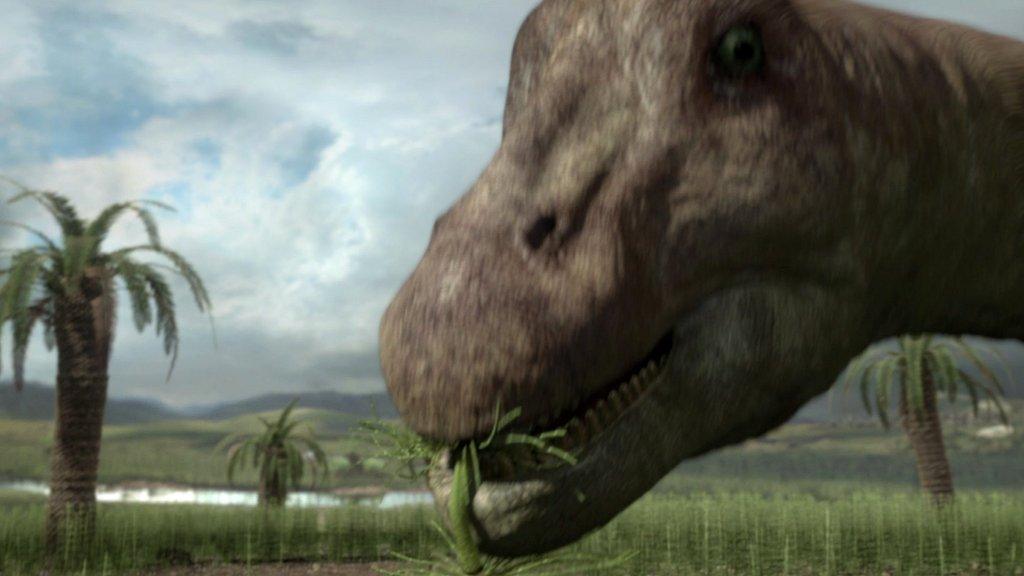Asteroid that wiped out dinosaurs "hit in springtime"
- Published
- comments
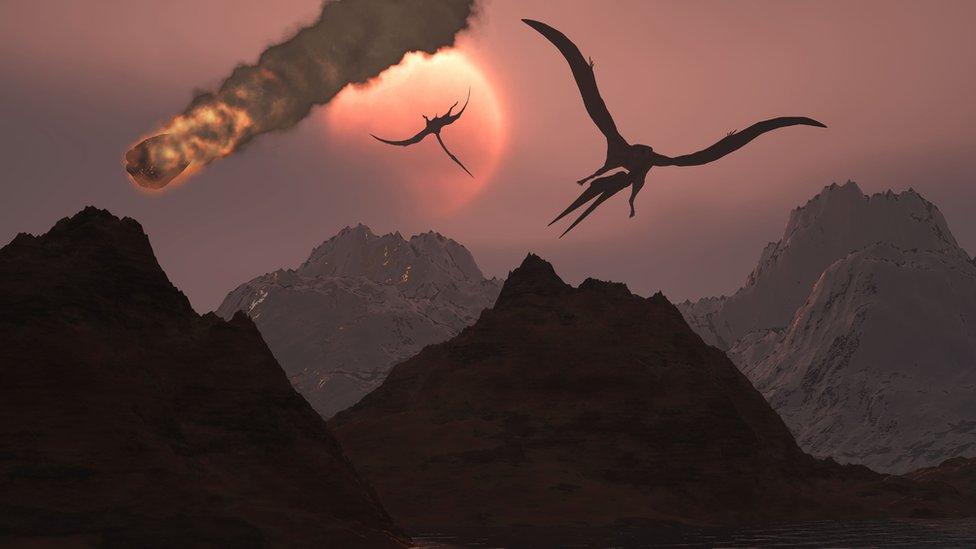
Previous research has suggested that an asteroid called the cataclysmic Chicxulub led to the extinction of dinosaurs 66 million years ago.
But now scientists say they have uncovered more about exactly when this huge event in history actually happened - in the spring time.
This could help to explain why it led to some many species becoming extinct.
For many spring plays a key part in feeding strategies and breeding patterns for both plants and animals, while for others it's when they give birth.
So researchers say it should be then no surprise that the time of year for such a big event as a asteroid hit to happen, can play a big role in how harshly it impacts life.
Had the impact happened at a different time the year the consequences for life on earth might not have been as dramatic.
How did they find this out?
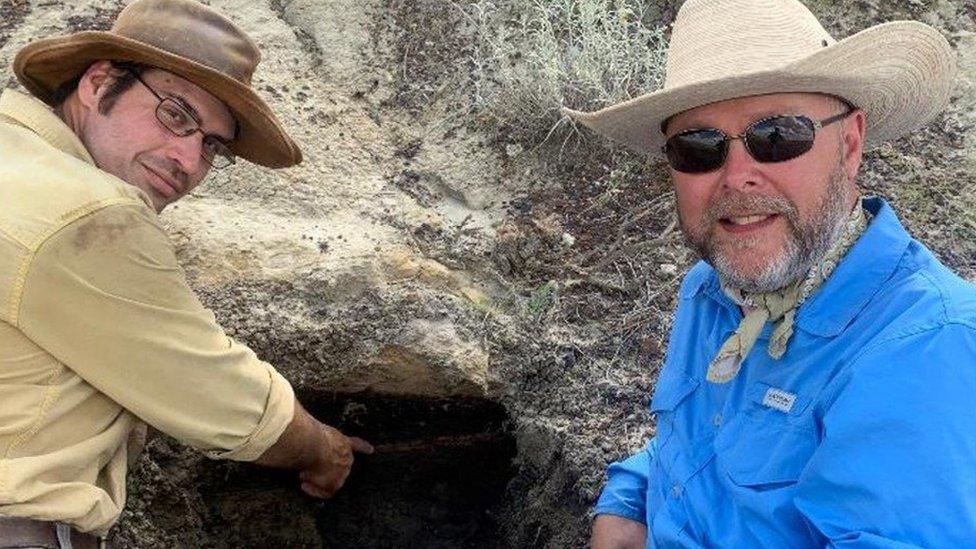
Researchers from The University of Manchester have been studying for a long time to find out more about why the asteroid brought an end to the era of the dinosaurs.
Their newest findings come after looking at fish fossils from Tanis, a site in North Dakota in the United States.
It's believed these creatures died just hours after the asteroid impact because of a massive water surge as a result of an earthquake.
The team used growth lines preserved in the fossil bones of the fish to work out what season it was when they died.
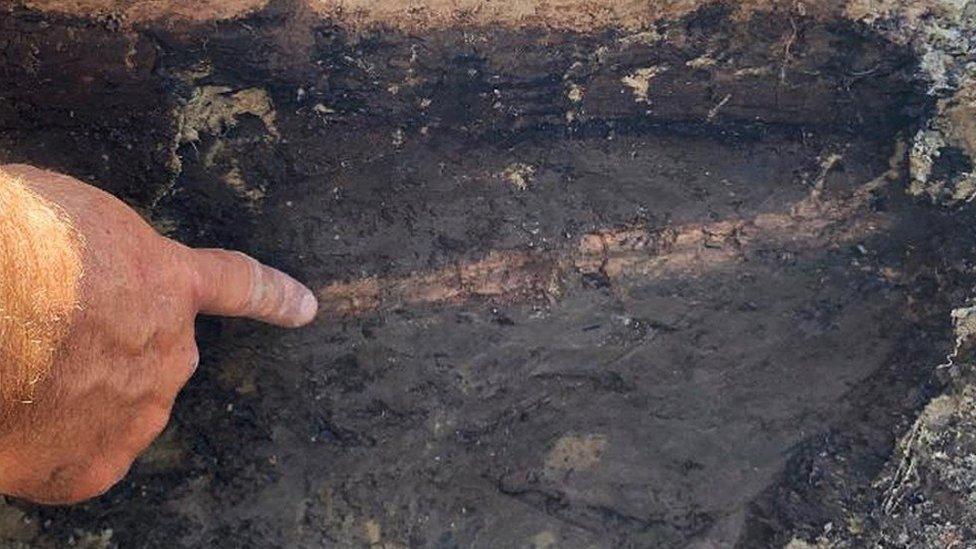
The team found that the bones of fish grow a darker layer during spring and summer, and lighter layers during autumn and winter.
The last growth lines they saw in the bones of fish fossils from Tanis were light, providing evidence that all of the fish died during the Spring-Summer growth season.
What caused the demise of the dinosaurs?
Robert DePalma, a doctoral student at the University of Manchester who led the study, said the discovery changes the way we can think of the asteroid hit that wiped out the dinosaurs
This event is often called the Cretaceous-Paleogene (K-Pg) extinction event, or the fifth mass extinction.
He added: "Extinction can mark the end of a dynasty, but we must not forget that our own species might not have evolved if it weren't for the impact and the timing of events that saw the end of the dinosaurs".
He also thinks the discovery can help us "better prepare for future ecological and environmental hazards", like asteroid or other large scale natural disasters.
- Published21 August 2021
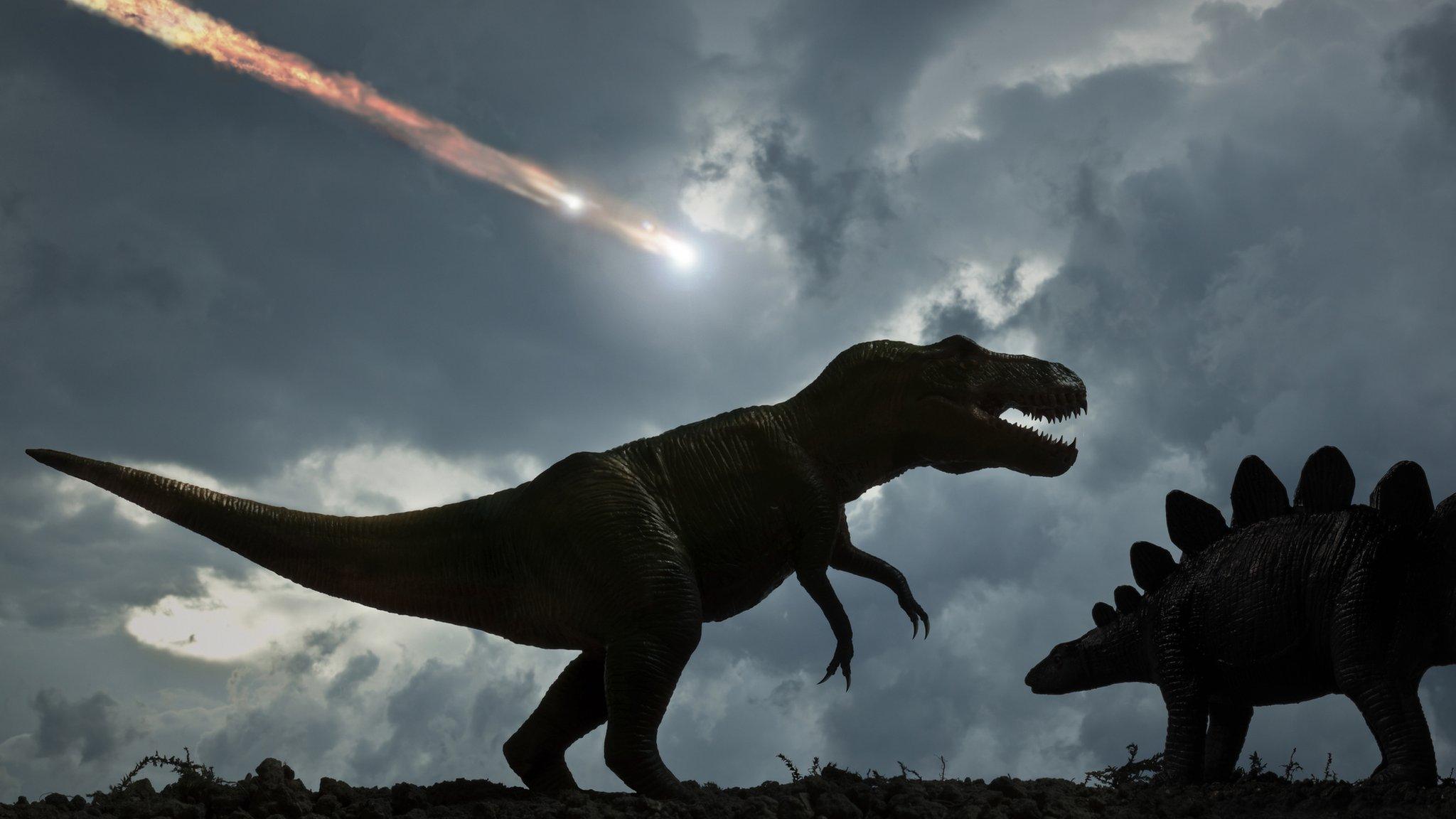
- Published30 June 2020
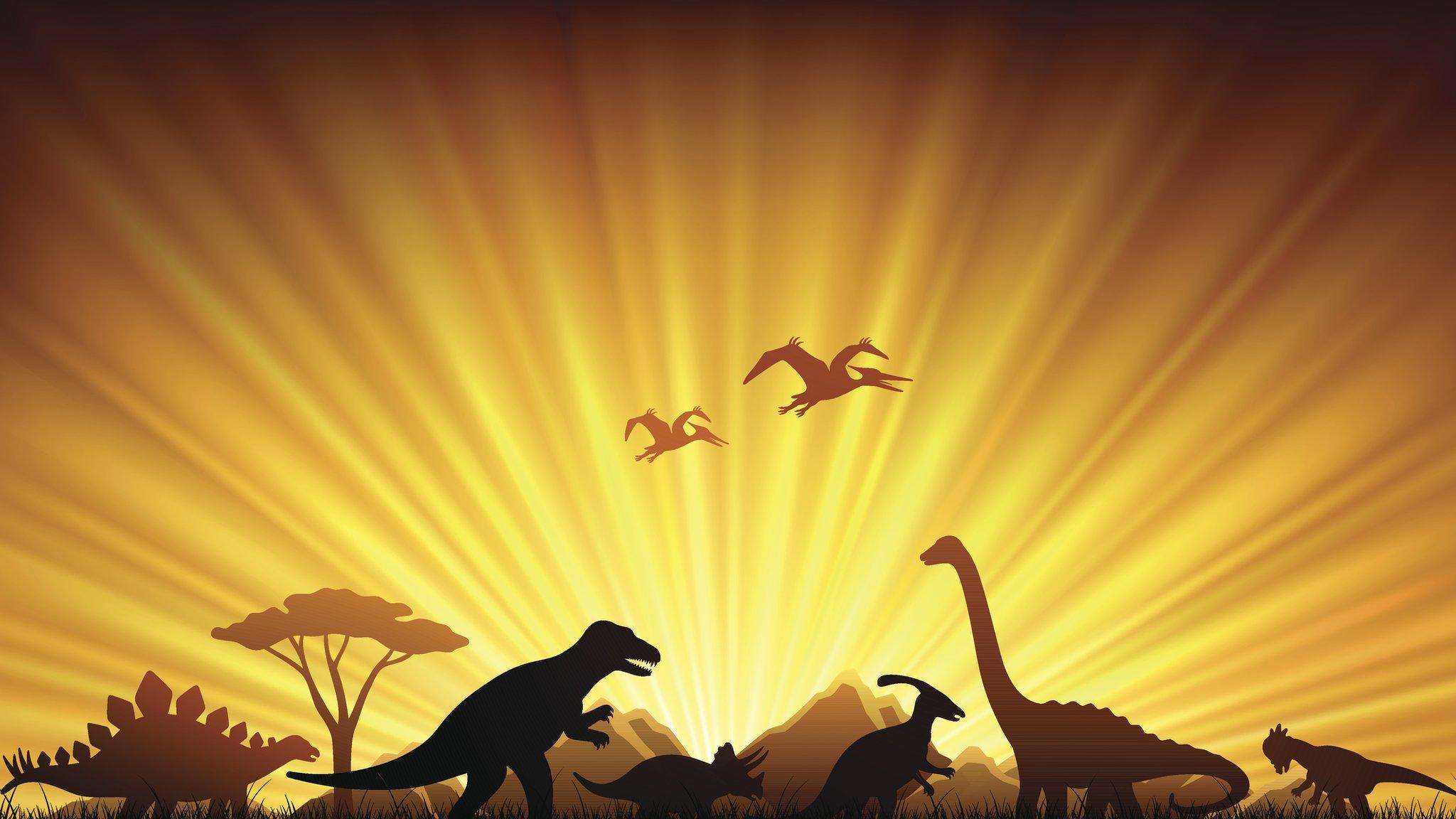
- Published19 April 2016
